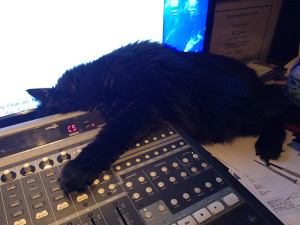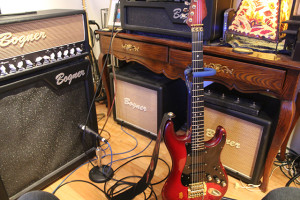Deadlines are an important part of getting projects finished. I learned to embrace them rather than to fear them. But they come at a price.
Just last week I delivered my mixed master to the record company. Two months earlier they heard my demos for a new CD and they were excited. These were songs I considered mostly finished and it was decided, that my next CD should be released in August. A September release date was not available and October seemed too late to create enough momentum on a single before radio shuts off the charts for Christmas. They usually don’t increase spins or add new songs to their playlists to make room for Christmas songs, starting as early as last week of November. An August release means the CD needs to be delivered by the first week of June. This is when the record label announces the CD to their distribution channels, registers the ISRC codes that help track the songs and so forth. This way the distributors will have the CD listed in their catalogue by July and can ship the orders in August.
I thought – no problem. All I had to do is schedule a few keyboard sessions, a bass session and record lead guitars, (something I like to keep for last) and then mix it. I also was two songs short, but since I had been working on an acoustic guitar album as well, I decided to pull two songs from that project and convert them to fit this new CD. I also had an additional song ready. I like doing that just in case I am not happy with how one of the tracks turns out. So I worked this month and fine-tuned the production on all the album tracks, recorded the missing bass parts, ear-candy, like percussion and additional keyboard parts and made sure I am happy with each song. By the end of April I was pretty much set with everything, except lead guitars and mixing. The demos sounded great, I was happy with the production and the compositions. Then it hit me: this is going to be an intense month.
I usually spend about a day per song to do a lead guitar track for my own record. I take my time to find the right sound, try different amps and mic placements. Then I relearn and practice the melody from my scratch track, maybe come up with a even better way to interpret the song. I will record several takes until I get the perfect performance. With ten more lead guitar tracks to record that’s 10 days. Mixing a song takes about a day and a half. At least that’s what I spend to make sure I get it right. For 12 songs that’s 15- 18 days and I’m talking 8 – 12 hours per day. So if I work 6 days a week and do nothing else I would just make the dead line and deliver.
That’s when I realized this is going cost me. As a contemporary jazz recording artist I am not independently wealthy. Other than collecting royalties, I have to make a living by either touring, or producing and writing for other artists, and doing guitar sessions. I also teach a few lessons or give lectures here and there. But to meet my deadline I had to put everything on hold for a month. Fortunately I had a record budget that allowed me to do so.
The lesson is that you shouldn’t underestimate how much time you need to get your CD finished. Try to get songs really finished early to avoid getting under a time crunch with your deadline at the end. But if you don’t set yourself a deadline, you’ll run in the even greater danger of never getting your project finished. I know of several wonderful musicians, who work on their album for years. They just keep changing it with out getting any further to the finish line. As I like to say (and I’m not sure who I am quoting):
“a good production, as well as a good mix is never finished, it’s just abandoned at some point”



